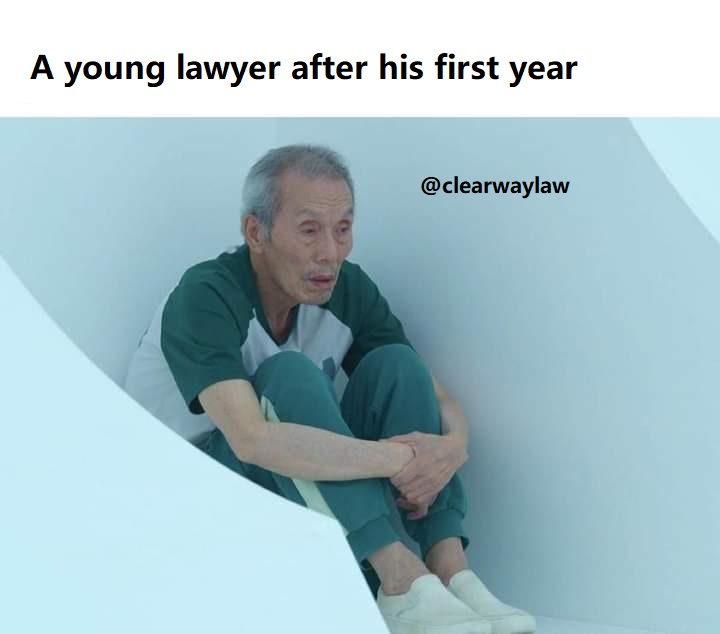The issue of whether or not courts discriminate against men is a complex and controversial one. While there is evidence to suggest that men may face bias in some cases, there are also many factors at play that can impact how court cases are decided.
One area where men may face discrimination in the courts is in family law cases. In some cases, fathers may feel that the court system is biased against them when it comes to custody or child support arrangements. There have been instances where courts have given preference to mothers in custody disputes, even in cases where the father has demonstrated a strong commitment to their children’s well-being.
However, it’s important to note that there are many factors at play in custody cases. The court’s primary concern is always the best interests of the child, and decisions about custody and support are made based on a variety of factors, including the child’s age, health, and well-being, as well as the parent’s ability to provide a stable and loving home.

The Controversial Debate Over Gender Bias in the Courts
Another area where men may face discrimination is in criminal cases. There have been instances where men have received harsher sentences than women for the same crimes. For example, men may be more likely to be sentenced to prison for drug offences or other non-violent crimes, while women may be more likely to receive community service or probation.
However, it’s important to note that there are many factors that can impact sentencing, including the severity of the crime, the offender’s criminal history, and the judge’s personal biases. While there may be instances where men face discrimination in criminal cases, it’s not always clear-cut.
At the same time, it’s also important to recognize that there are many areas where women may face discrimination in the courts as well. Women are more likely to experience domestic violence and sexual assault and may face biases when it comes to reporting these crimes or seeking justice through the legal system.
Ultimately, the issue of whether or not courts discriminate against men is a complex and nuanced one. While there are certainly instances where men may face bias or discrimination, there are many factors at play that can impact how court cases are decided. It’s important to approach these issues with an open mind and a willingness to consider all of the factors involved.
Understanding the Factors That Contribute to Bias in the Legal System
One potential strategy for addressing bias in the courts is to work towards greater diversity and representation among judges and other legal professionals. By ensuring that the court system reflects the diversity of the population it serves, it may be possible to reduce the impact of personal biases and ensure that decisions are made based on the facts of each case.
Another strategy is to work towards greater transparency and accountability in the court system. By making court proceedings and decisions more open and accessible to the public, it may be possible to reduce the impact of bias and ensure that cases are decided based on the facts and the law.
The goal should be to create a fair and just legal system that treats all individuals equally, regardless of their gender or any other factors. By working together to address bias and discrimination in the courts, we can help to create a society where everyone has equal access to justice and the protection of the law.
Examining the Evidence: Do Men Really Face Discrimination in the Courts?
It’s not uncommon for the courts to take more of a “needs-based approach” when determining support, Wong says.
Similarly, he says fathers who may have sacrificed their careers to care for their children while their spouses brought in the bulk of the income may be concerned about being treated fairly in the courts.
“It seems that the overwhelming sense among men is the legal system is slanted against them, so they don’t feel this sense of security, even though this may not be the reality,” Wong says.
In the end, the issue of coercive caring predominantly remains a women’s issue, he says, adding he considers himself a feminist.
“But any feminist should care equally about an issue, whether it largely or disproportionately affects women or men,” he says. “This is an issue that crosses the gender divide, and legal practitioners need to be aware of our own biases.”
“It’s time for the public to wake up. These attitudes are everywhere.”

The Impact of Personal Biases on Legal Decision-Making
The murder of a prominent family physician by her neurosurgeon husband demonstrates that violence and domestic abuse transcend socioeconomic status, says Toronto family lawyer Inna Tsinman.
“The question this case raises is why did an intelligent woman who had access to financial resources — and knew it was not in the best interests of her children to stay — still not leave her husband?” she tells AdvocateDaily.com. “From the various media reports, it appears, at least in part, that the answer lies in the fact he was financially controlling her.”
The Toronto Sun reports that the mother of the murdered physician told reporters that the husband, who was recently sentenced to life in prison with no chance of parole for 14 years, stockpiled money in his name while his wife didn’t even have her own bank account.
“Even from behind bars, he was trying to remain in control, possibly trying to bankrupt us through court processes,” the mother said in a statement.
Access to family bank accounts
Maclean reports that financial control frequently occurs in affluent abuse, and while a woman may be worth millions on paper, she might not have access to family bank accounts.
Tsinman, principal of Tsinman Law, says she frequently sees intelligent, professional women in her practice who are being controlled psychologically and financially by an abusive partner but do not leave the situation.
“This is not the first case where I’ve seen wealthy women who continue to be in this type of relationship,” she says. “Psychological abuse often has economic undertones, but the women are so invested — because of the children, their social status and other reasons — they often are just hoping the situation will improve.”
Tsinman is pushing for the development of a new tort of economic coercion to protect women in relationships of financial dependency.
“It’s a slow process that begins with a shift in people’s thinking about these kinds of issues,” she says. “People in relationships with extreme power imbalances often can’t see it until someone objectively points it out.”
Courts Discriminate Against Men?
There’s a great deal of mistrust around these ideas because people often feel an agenda is being pushed from on top of an ivory tower, Tsinman says.
“Politically, it is a difficult time to raise feminist issues, especially for women who are accused of not understanding another’s reality. Feminists are being attacked and those who criticize them are trying to create a socio-economic gap between them and the people they are trying to help, but such portrayal is not the reality for many feminists,” she says.
“I have worked with women who have been in relationships where they are completely under their partner’s control. Once they realize that and start to shift their thinking, they become much more independent.”
The Intersection of Gender and Race in the Court System
Economic coercion is insidious, and can take many forms, Tsinman says.
“I see women who just hand their paycheques over to their man, and they don’t know what’s happening with it,” she says. “The partner has all the accounts and investments in his name, even though she is contributing.
Tsinman says economic coercion may have played a role in the abuse the Toronto doctor suffered at the hands of her husband.
“Why are we still ending up with women in these circumstances?” she asks. “She apparently received advice from a lawyer to make a safety plan, but that in and of itself was not enough. She still stayed in the relationship, perhaps because he was constantly controlling her and weakening her spirit.
“It’s time for the public to wake up. These attitudes are everywhere.”
Strategies for Addressing Bias and Discrimination in the Legal System
A test for the tort of mental distress arising from sexual coercion would help protect women in this developing legal area, Toronto family lawyer Inna Tsinman tells AdvocateDaily.com.
Women in marriages or long-term relationships who face harassment or distress as a result of the economic pressure to perform sexually find themselves in a somewhat unique situation when it comes to how the law views their issues, says Tsinman, principal of Tsinman Law.
It’s why Tsinman and her team are working toward developing a new test, arising from previous ones used in cases of both mental distress and revenge porn.
She says the test can be laid out in three clear steps:
- economic dependency is established
- the reliance leads to outrageous conduct
- ultimately it causes visible and provable illness
For example, Tsinman would like to see the test applied in cases such as a model living abroad who is in a relationship with a very wealthy man who then sponsors her to live in Canada.
“When she’s here, he is extremely controlling financially and demands very rough sex and things that are completely beyond her boundaries,” she says of her baseline example. “The victim feels that because of her circumstances, she has no choice but to comply.”

The Importance of Diversity and Representation in the Legal Profession
Women in such situations — typically in some form of a long-term relationship — are facing abuse but the link to economic dependency differentiates these cases from other forms of sexual or domestic abuse, leading to the need for a new tort, Tsinman says, adding this economic dependency forms the first leg of the tort.
“The decision this person has to be making is financial,” she says. “’If I don’t get married or stay in this relationship and perform sexual favours, certain benefits will be taken away from me.’”
It can be argued that this financial tie in effect vitiates the consent, Tsinman says, raising an important question.
“Can consent only be granted at the beginning of marriage — at the start of a contract — or does it have to be ongoing?” she asks. Although she wishes to argue the latter, she is still building the evidence and precedent to support it.
Another important part of the test is that the economic dependency leaves the person with no realistic alternative, Tsinman says. Although one may argue there is always an alternative for someone in a bad relationship, she says it is vital to recognize how mental distress leads someone to feel trapped.
Courts Discriminate Against Men?
After the test of economic dependency has been met, Tsinman proposes the situation leads the perpetrator to conduct themselves “outrageously.”
“This may include explicit threats (‘It’s my way, or you’re out’), cutting off access to funds, physical threats under economic coercion, and preventing access to outside support, she says. “This behaviour often leaves the woman feeling humiliated or with lost self-esteem.”
Then, Tsinman says, the victim must demonstrate their mental health has suffered, through either humiliation, depression, reduced self-esteem or anger issues, for example.
Again, it all must draw back to the economic link, she says.
“It’s highly unlikely this woman would enter the relationship without the economic coercion,” Tsinman says.
Do you think the courts discriminate against men?











